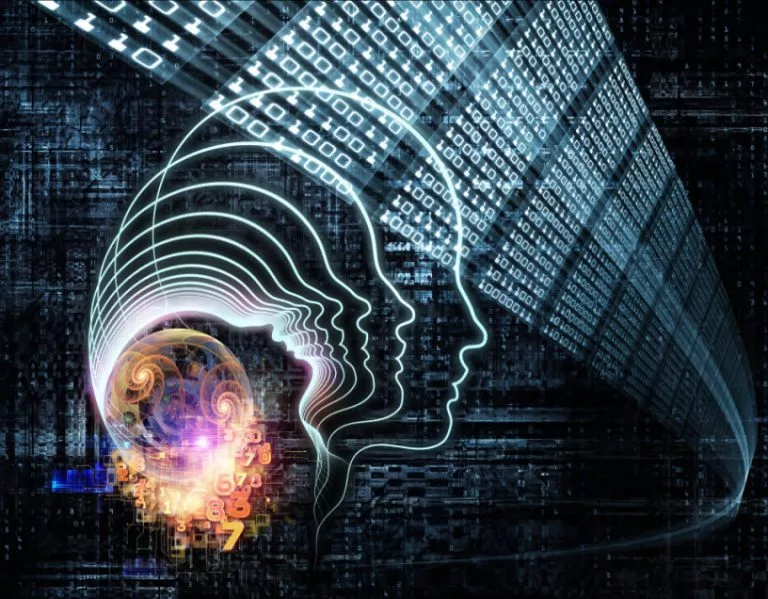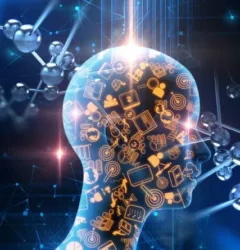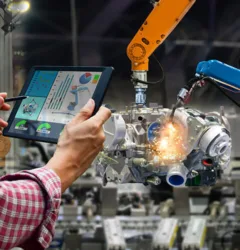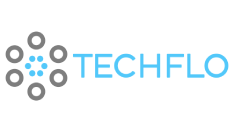29 Sep

Artificial Intelligence has made significant strides in today’s world. From ruling the realms of Sci-Fi to convincing people about its specs and future growth, AI is becoming a part of everyone’s life.
This leads to a new debate of AI vs Human Intelligence: Whether machines can truly replicate human cognition?
What is Artificial Intelligence?
Artificial Intelligence, or AI, refers to the development of intelligent machines capable of performing and doing tasks that would otherwise require manual human input.
Imagine you have to come up with a new project design; you would think about a specific scenario for days, chalk out a plan, and then brainstorm your decisions. This whole process is time consuming and hectic. Depending on the internal and external factors, your information & planning will also have barriers. As a result, higher chances of fatigue and boredom.
On the other hand, an AI is fed on algorithms and machine learning techniques that help identify, pick, analyze, and brainstorm data from all over the world within a few minutes, thus, improving your decision-making and project delivery.
AI systems can mimic the behavior of humans, for example, a recent study showed how AI is revolutionizing journalism through “AI-assisted reporter”. It is said that AI-assisted reporters will be at the forefront of the new era to create local, international, and national content for different brands.
Hence, AI-powered systems are universal in our lives, whether we are aware of them or not.
For instance, when your mobile uses facial recognition or thumb scan, it is powered by AI detectors. Likewise, when you use Google Maps, Autocorrect, and Smart Speakers like Siri, it is all AI-powered.
What is Human Intelligence?
Human Intelligence is the intellectual capability that allows humans to engage in complex cognitive tasks like retaining information, making decisions, and communicating with others.
Human intelligence, like AI, is a myriad network where different stimuli work cohesively to help reach a single outcome.
The easiest way to distinguish between human intelligence and AI is that human intelligence is flexible, unlike AI, which is dependent on programmed algorithms. This means that human intelligence can vary substantially depending on the circumstances, context, and nature of issues.
Can Human brain cells learn faster to compete with AI?
According to recent research, altering the electrical characteristics of certain cells in the neural network can help them acquire new information more quickly than those without alteration. In addition, to produce similar results, a certain level of modification was necessary.
This information helps us understand how the human brain adapts and continuously learns and also helps develop efficient AI systems such as speech and facial recognition software for autonomous vehicle navigation systems.
Artificial Intelligence Vs Human Intelligence: A Comparison
| Parameters | Human Intelligence | Artificial Intelligence |
| Development | Human Nature distinguishes how each individual thinks, reasons, and evaluates differently. | According to studies, critique mechanisms are the most important development that led to the establishment of artificial Intelligence. (AI) |
| Principle | The main principle of human intelligence is to combine different cognitive abilities that help humans to adapt to new circumstances. | AI operates to create computers that can mimic human behaviors and complete tasks in a much more efficient and easier way than humans would. |
| Functionality | Human Intelligence consists of memory, perception, attention, and cognitive talents that help them formulate and perform specific tasks | For any AI-powered device or tool to work, processing of data and commands is essential. |
| Pace of Operation | Human Intelligence is far more slow in operation in comparison to AI | AI is much faster in operation and processing data in comparison to human intelligence. |
| Flexibility | The flexibility of human intelligence varies from individual to individual & different personality traits. | AI is only able to accomplish a fraction of a task at one time. For it to adapt to different situations, multiple commands are required. |
Can AI truly compete with Human Intelligence?
Despite being designed and trained to mimic and stimulate human behavior AI will always require some sort of human assistance. Hence, it cannot learn on it’s own through experiences and challenges like humans do.
Furthermore, it lacks creativity and imagination as it is dependent on the pre-existing algorithms and languages, any rule that doesn’t align with the pre-set algorithm will not respond. According to a famous data scientist, Nick Burns, “No matter how good your models are, they are only as good as your data…” . Therefore, AI can never understand the concept of cause and effect relationship. Hence lacks rational decision making.
In terms of cognitive abilities, AI has made significant progress in recent years such as translating languages, making decisions, and recognizing patterns. However, it still lacks cognitive abilities like empathy, intuition, and common sense. These cognitive abilities are essential to human intelligence and enable them to perform complex social and emotional tasks.
The very creation of AI in the first place is the result of human intelligence. Therefore, the ongoing debate of whether AI competes with human intelligence automatically gives human intelligence more credibility.
While AI has many potential strengths to revolutionize the world it cannot compete with the essence of human intelligence in social and emotional domains.
What will the future of Human vs AI be?
While AI is advancing with the world, the time required to train and develop AI systems is also increasing. Whether it’s robots, complex technologies like image processing or NLP (natural language processing) all require some sort of human input for development.
According to a report presented in 2018, predicted that by 2022, AI would displace 75 million jobs globally. This will revolutionize the job market by launching 133 million new jobs. Targeting markets of Data Scientists, ML algorithms, Developers, Data miners, Data Wrangling, Software engineers, and data visualists. It also predicted that 42% of task hours will be performed by machines and 58% will be done by people. Thus, the emergence of AI means that the future is based on a much easier and better work-life balance.
Conclusion
To conclude, the future of AI is more likely to be a collaboration with machines and human functionality rather than a competition. AI as a tool, may have numerous benefits but still requires human input, thus, humans still have superiority of some sort over AI.



